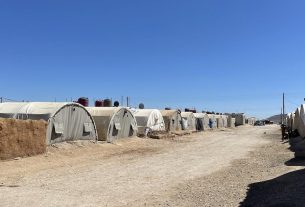Ramallah: As per Palestinian human rights organisations, Israeli security forces are harshly prosecuting Palestinian social media activists and users for allegedly inciting violence.
The organisations claim that in 2022, Israeli authorities significantly increased their persecution of Palestinians on social media, particularly Facebook. According to the Palestine Center for Prisoners’ Studies, 410 Palestinians were imprisoned over the course of the year as a result of their social media usage.
The centre asserts that over the past few years, the number of Palestinians detained for posting opinions online has steadily increased. The number was 45 in 2018, rising to 184 in 2019, 220 in 2020, and 390 in 2021, the year Israel attacked the Gaza Strip and arrests spiked.
Also Read: Iran’s ruling elite disagrees on how to handle protests
The Palestinian Association for Human Rights, Shahid, asserted that the crackdown violates both the International Covenant on Civil and Political Rights and the Universal Declaration of Human Rights. It also described it as a risky development in Israel’s repressive policies in the Palestinian Territories, noting that Israel had “significantly escalated” its persecution of Palestinians last year in order to stifle their right to free speech.
Shahid further cautioned that if these policies are not changed, “a violent environment that entrenches disrespect for human rights” will probably result.
Palestinian social media experts told Arab News that more than 2 million Palestinians currently use Facebook, with about half of them also using Instagram, TikTok, Snapchat, and Telegram.
Israel had pushed Meta, the company behind Facebook and Instagram, to censor accounts belonging to Palestinians who it claims are inciting violence against Israel. Numerous Palestinian activists have turned to Tik-Tok and Telegram as a result of the hundreds of Palestinian accounts that Meta has restricted and blocked.
Also Read: 2 power plants in Russia-controlled areas of Donetsk are damaged by Ukrainian shelling
Israel is reportedly planning to pass a law that, according to the country, will limit social media content that it deems to be inciting violence against Israelis.
Shahid asserts that Palestinians are being detained for Facebook comments that merely express resentment toward Israeli oppression and the continuation of the occupation of Palestinian territories without calling for violence.
Following the recent escalation of violence in the West Bank that began in April 2022, Israel’s censorship of social networking sites grew. The social media sites have allegedly seen an unprecedented number of posts since then encouraging readers to attack Israel, according to the Israeli authorities.
Israeli security services have established monitoring teams to follow Palestinian social media posts and look for any material that might suggest support for violence or affiliation with an armed group. The owners of content that the security services deem to be an incitement to violence are charged with a crime.
According to Akram Tamara, a lawyer for the Palestinian Commission for Detainees and Ex-Detainees Affairs, Israeli military authorities were detaining and prosecuting individuals under the Military Emergency Law, and sentences ranged from six to 18 months depending on the number of likes the published post received, the quantity and nature of the comments, and the Israelis’ classification of the commenters.
Also Read: Prestigious US attorney who supports Israel opposes legal reform
Amer Hamdan, a Nablus-based legal activist and attorney, told Arab News that Shin Bet had summoned him in April 2022 due to the nature of some of his Facebook posts and advised him to stop calling for solidarity marches with Gaza.
According to Hamdan, who spoke to Arab News, “They told me clearly and frankly that I was on their radar and that if they believed I was inciting against the State of Israel, they would deal with me “as an instigator.”
Hamdan claimed that after that, he started to self-censor his posts on Facebook and other social networking sites like Tik-Tok and reduced the number of posts he made overall.



